It’s summertime in Los Angeles, and people are outside. If there’s one place to be this weekend, it’s Hot Water Cornbread.
Serving as one of the most highly-anticipated events of the summer, HWCB is LA’s biggest Southern music and food festival, deemed “a family reunion you don’t have to age out of.” Launching in June of last year, HWCB quickly became a staple in the city, attracting the who’s who of LA and immersing them in Southern culture.
The mastermind behind it all is entrepreneur Justin Cox. HWCB invites people of all ages and backgrounds, guaranteeing an unforgettable experience that will have you eagerly awaiting the next one.
“The goal of Hot Water Cornbread is to celebrate the fun and diverse Southern food and music culture while providing a platform for Black businesses to generate revenue and thrive,” Justin Cox explains. “It’s like Coachella meets the South, where everyone is welcome, and every moment is a celebration of life and legacy.”
On Sunday, August 18th, HWCB will be taking over The Beehive for yet another festival to remember. We spoke with Justin about his background and how he created one of the most popular festivals to date.
Talk about your background. Where are you originally from?
I’m from a small suburb of San Diego called Vista. I used to be ashamed of it because there weren’t many Black people there. That’s actually how my event started—in this small town called Vista, in San Diego County. I was a fashion photographer and had a pretty dope marketing agency at one point. Now, I curate events for the culture.
When did you first get the idea for Hot Water Cornbread? And what’s the story behind the name?
Yes! Being from a very small, predominantly white suburb in San Diego, I didn’t grow up with much exposure to Black culture. But my family is from the South, and my great aunt—shout out to Aunt Verna—would take me in during the summers. She felt sorry for me because I didn’t know much about Black culture, especially Southern food. She introduced me to everything from hot water cornbread to buttermilk (which is disgusting) to chitlins. You know about chitlins? It’s pig intestines. She’d laugh at me eating it and say, “You know what you’re eating, right?” But I loved it.
When she passed, I wanted to carry on that tradition of introducing people to Southern cuisine. I’ve always loved Southern music too. When a Southern song comes on in the club, everybody goes crazy. Back in the day, when “Lean Wit It, Rock Wit It” and those kinds of songs came on, the energy and fun were off the charts. I wanted to recapture that and reintroduce it to LA culture.
Why is it important to celebrate Southern music and food?
For African Americans, our real introduction to America was in the South. From our food to our heritage, from slavery to sharecropping, those Southern roots remain incredibly strong and beautiful. There’s even a movement of African Americans returning to the South, embracing agriculture and farming again. Sure, some Southern foods are high in cholesterol and bad for your blood pressure, but in moderation, they’re great. We even have some amazing Southern vegan vendors at our festival.
I’m vegan!
Okay! Then we’ve got something for you. It’s really fun to see this next generation embracing Southern traditions—food, heritage, and even style, like incorporating cowboy hats into their look. We see that a lot at Hot Water Cornbread.
What was the reality of putting on the first event in June? How much work was that?
Man, it was a lot of work. To do it the way we wanted, we had to do a complete build-out and buy-out. Unfortunately, some clubs in Los Angeles aren’t comfortable with large gatherings of African American people. A lot of these clubs still owe me money. They love our culture but sometimes get weird with us. If two Black people get into a scuffle—not even a fight but just an argument—they think it’s gang-related and say, “You can’t come back.” But if two white people get into a scuffle, it’s just brushed off.
That led me to do a build-out. I found this amazing space called The Beehive, which is Black-owned. They really worked with me—shout out to Moe & Kasia at The Beehive. They helped me get in and gave me everything I needed to start. It’s a lot of money to kick off something like this and not know if it’s going to succeed, but I believed in it. I believed in the culture and felt we needed it. Praise God that people felt the same energy and showed up for it.
How did you get the word out?
We got really blessed. When I create for the culture, I don’t want to replicate something that’s already out there. I try to fill a gap. When you do that, people feel it. It’s like when the iPhone first came out—we didn’t know we needed it until it was there. Southern food and music, Black vendors, horseback rides, a petting zoo—we’ve got kids in South Central riding horses for the first time in their lives. I grew up with horses, a potbelly pig, and a sheepdog in that small rural town of Vista. A lot of this stuff comes from my family and upbringing.
What was the biggest highlight from last year’s event?
When you’re curating something, it’s easy to get so focused on what’s ahead that you forget to enjoy the moment. I’m a huge TV person—I’ll leave a party early just to finish a Netflix show. When I hang out with someone, I’m always curious about the shows they watch, because if their taste is off, I’m probably not interested.
What’s your favorite TV show?
I have a list by genre. Right now, it’s shows like Insecure, Bel-Air, All American, and Atlanta. The biggest highlight of the event was simply having a great time, then looking up to see people I watch on TV hanging out at the event. I’ve even got videos of us taking shots together. It was surreal to see celebrities enjoying something I created.
Also, we employed over 500 people from South Central LA and gave over 500 Black businesses the opportunity to generate revenue. We recycled over a million dollars back into the Black community in just one summer. That was an exciting stat to have.
What’s been the most rewarding part of organizing this festival?
I’ve had people come up to me on the street and say, “You helped me open my first brick-and-mortar store,” or “Because of you, my food business that no one knew about is now thriving.” Some even say, “I quit my job and now I’m a full-time vendor or restaurant owner.” It feels amazing to know that something I created is putting food on people’s tables and helping them sustain themselves.
Where do you see Hot Water Cornbread going in the next five years?
I want to create a Southern Coachella, but with a fair-like atmosphere where we can still have the horses and farm animals. I love exposing kids and people of all ages to the various elements of the South. At HWCB, we have different zones: a food zone, a shopping zone, a fun zone with animals and horses, and Club Collard Greens—a 21+ zone where people can dance and enjoy Southern music.
But if someone starts twerking, everyone’s attention shifts. We could be riding horses, Jesus could walk in on a donkey, and no one would notice. But if someone twerks, suddenly everyone’s filming. We don’t show it on our main page, but it’s on Club Collard Greens’ page. We want to maintain a family-friendly atmosphere while still offering a space for people to turn up. I’d love for HWCB to become a Southern Coachella that balances family vibes with fun for everyone.
How are you feeling about the upcoming event?
I’m feeling good. We’re launching something special called the Big Back Pass. A “Big Back” is someone with an eccentric appetite—someone who loves food and wants to try everything. We have 30 to 40 food vendors, and it can be overwhelming to choose just one place to eat. With the Big Back Pass, for one price, people can sample food from multiple vendors. And the best part? The vendors participating in the Big Back Pass get to vend for free. The pass covers the cost of their vending fee, helping them out while giving attendees a broader experience.
I’m also excited to see the fashion evolving. At first, guys would come in casual clothes, but now they’re showing up in cowboy hats, looking swaggy and dapper. It’s great to see people raising the bar, not just with fashion but in the overall experience. The food, the vendors, the atmosphere—I’m thrilled to see how it all comes together this year.



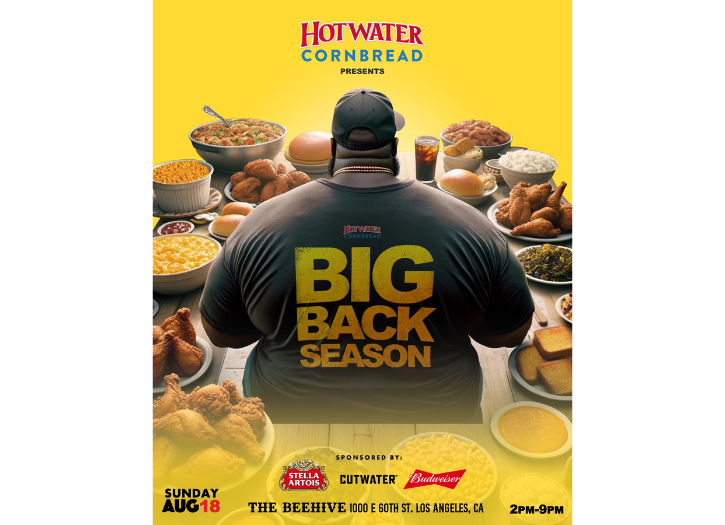
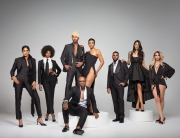

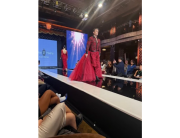
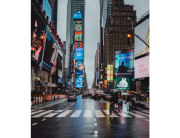
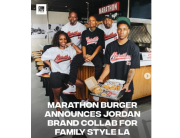
Add Comment
You must be logged in to post a comment.